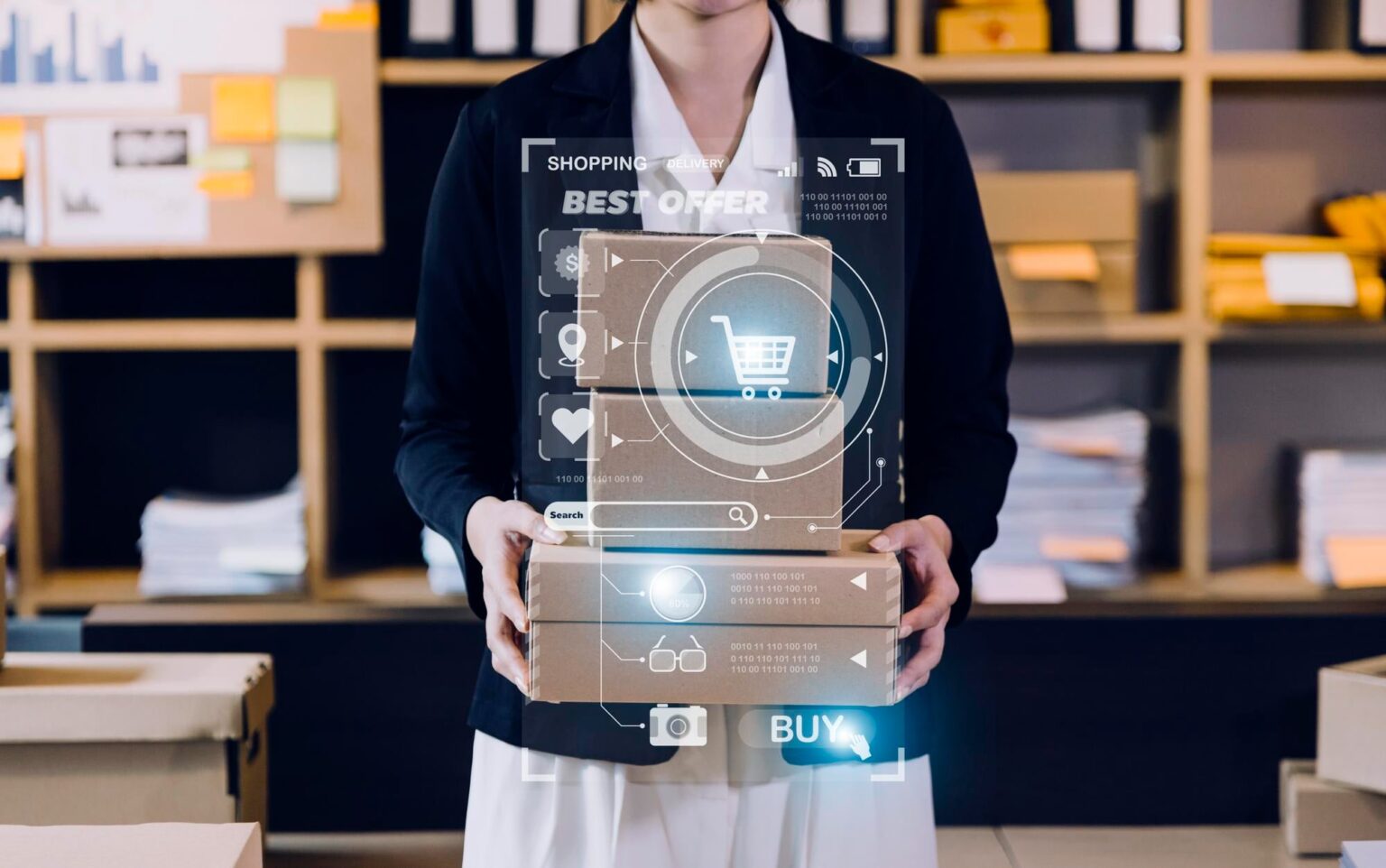The future of retail technology is poised to revolutionize the shopping experience for both online and brick-and-mortar retailers. With advancements in artificial intelligence, augmented reality, robotics, and data analytics, retailers are leveraging technology to create more personalized, convenient, and immersive shopping experiences. Here are some key trends shaping the future of retail technology:
- Personalization and Customization: Retailers are utilizing data analytics and AI-powered algorithms to understand consumer preferences and behaviors better. This enables them to offer personalized product recommendations, targeted promotions, and tailored shopping experiences. From personalized product suggestions on e-commerce websites to customized in-store experiences, personalization is becoming a cornerstone of the retail industry.
- Augmented Reality (AR) and Virtual Reality (VR): AR and VR technologies are transforming the way consumers shop by offering immersive and interactive experiences. Retailers are leveraging AR and VR to enable virtual try-on of clothing and accessories, visualize furniture and home décor in the customer’s space, and create virtual showrooms for an enhanced shopping experience. These technologies bridge the gap between online and offline shopping, allowing customers to make more informed purchase decisions.
- Mobile Commerce and Contactless Payments: With the widespread use of smartphones, mobile commerce is on the rise. Retailers are optimizing their websites and mobile apps for seamless mobile shopping experiences. Additionally, contactless payment methods such as mobile wallets, digital payment platforms, and QR codes are gaining popularity, providing customers with convenient and secure payment options.
- Artificial Intelligence and Chatbots: AI-powered chatbots are being deployed by retailers to provide instant customer support, answer queries, and assist with purchase decisions. These chatbots leverage natural language processing and machine learning algorithms to understand customer inquiries and provide personalized responses. AI is also used for inventory management, demand forecasting, and dynamic pricing, optimizing operations and improving customer satisfaction.
- Robotics and Automation: Robotics and automation are revolutionizing various aspects of retail, including warehousing, inventory management, and order fulfillment. Autonomous robots are being used in warehouses for efficient picking and packing of products, while automated checkout systems are being implemented to enhance the shopping experience. Robots are also being deployed for inventory monitoring, shelf restocking, and even in-store customer assistance.
- Internet of Things (IoT): The IoT is enabling retailers to create connected shopping experiences. IoT devices, such as smart shelves and beacons, are used to collect real-time data on customer behavior, optimize store layouts, and send personalized offers based on customer proximity. Additionally, IoT-powered supply chain management solutions enhance inventory visibility, reduce out-of-stock situations, and improve overall operational efficiency.
- Social Commerce and Influencer Marketing: Social media platforms are increasingly becoming shopping destinations. Retailers are leveraging social commerce features to enable seamless product discovery and purchase directly within social media platforms. Influencer marketing is also playing a significant role, with retailers partnering with social media influencers to promote products and drive customer engagement and sales.
- Seamless Omnichannel Experiences: Retailers are focusing on delivering seamless shopping experiences across multiple channels, including online, mobile, and physical stores. Customers expect consistent experiences as they switch between channels, and retailers are investing in technologies that enable unified inventory management, order fulfillment, and customer data integration across channels.
- Sustainability and Ethical Shopping: Consumers are increasingly conscious of sustainability and ethical considerations when making purchasing decisions. Retailers are leveraging technology to provide transparent information about product sourcing, environmental impact, and ethical practices. Blockchain technology, for example, can be used to track and verify the authenticity and sustainability of products throughout the supply chain.
- Data-driven Insights and Predictive Analytics: Retailers are harnessing the power of big data and predictive analytics to gain insights into consumer behavior, trends, and demand patterns. This data-driven approach helps retailers optimize inventory management, pricing strategies, and marketing campaigns, leading to improved profitability and customer satisfaction.
The future of retail technology holds immense potential to transform the shopping experience, making it more personalized, immersive, and convenient. By embracing these technological advancements, retailers can stay ahead in a competitive landscape and meet the evolving expectations of consumers.



